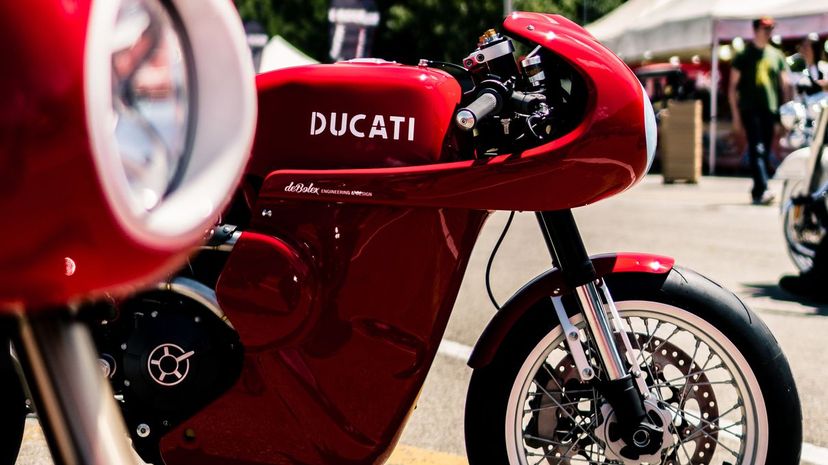
About This Quiz
Getting from one place to another is one thing; getting there in style and enjoying the experience is quite another.Â
Motorcycle riders are a breed apart from other travelers on the highway. In a car or a truck, it's easy to divorce yourself from your surroundings. Climate control, surround-sound stereo and all the other creature comforts allow you to ignore the natural world around you. On a motorcycle, however, you're part of nature. You feel the wind, the heat, the cold and the rain, and you're OK with that because it's all part of the journey. You know the roads in a way that automobile drivers never will, and deep down (or maybe not so deep down), you pity them.
Just like motorcycle riding, this quiz isn't for everyone; it's for those who want to feel a sense of adventure in each ride they take. Riding a motorcycle isn't a simple choice of vehicle. It's a lifestyle decision, and one that's rich in history and has a sense of community, unlike any other on the road.Â
Experienced riders know what it's like to become one with their bikes, to travel the road and appreciate every second of the journey. Prove you know your way around your hog, chopper, adventure bike or whatever motorcycle you ride by acing this quiz! Get your motor running, and let's hit the highway!
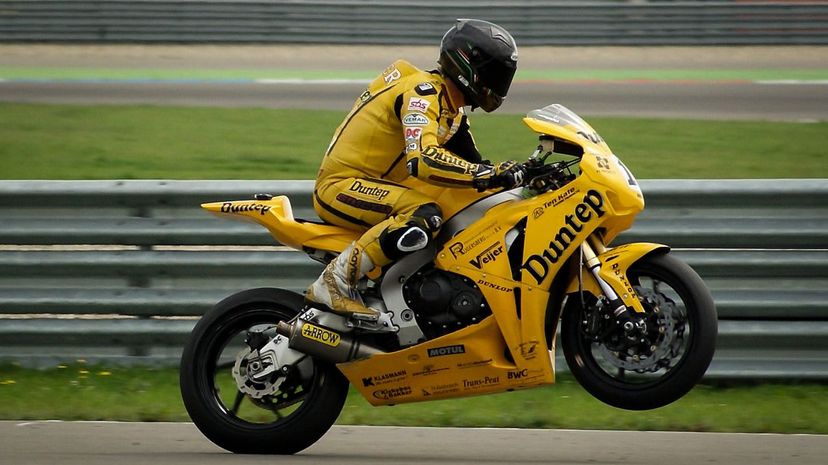
A "crotch rocket" is another name for a sports bike - one that is designed to run fast on paved roads and is optimized for speed, cornering, acceleration and braking. "Comfort" is not a factor when it comes to these specialized types of motorcycles; the rider is typically hunched over for better aerodynamics. Some can go up to 190 mph or faster.
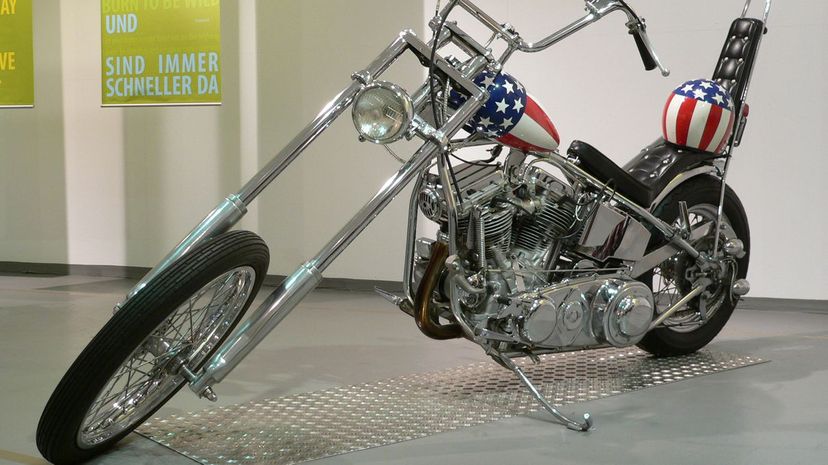
If it's got long front forks and a rider leaning back in style with some attitude, it's a chopper. This type of bike was first seen in California in the late 1950s, and choppers were the bikes ridden and made famous by Peter Fonda and Dennis Hopper in the 1969 film "Easy Rider."
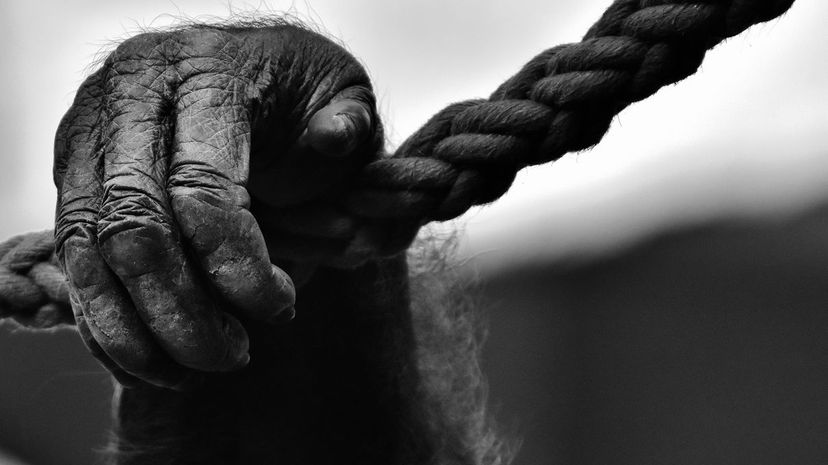
"Ape hangers" are handlebars that are tall - so tall, in some cases, that the rider actually has to reach up to take hold of them. Usually found on chopper bikes, some believe these handlebars were first used to allow riders with no rear suspension on their bikes to lift themselves from their seats to miss potholes.
Advertisement
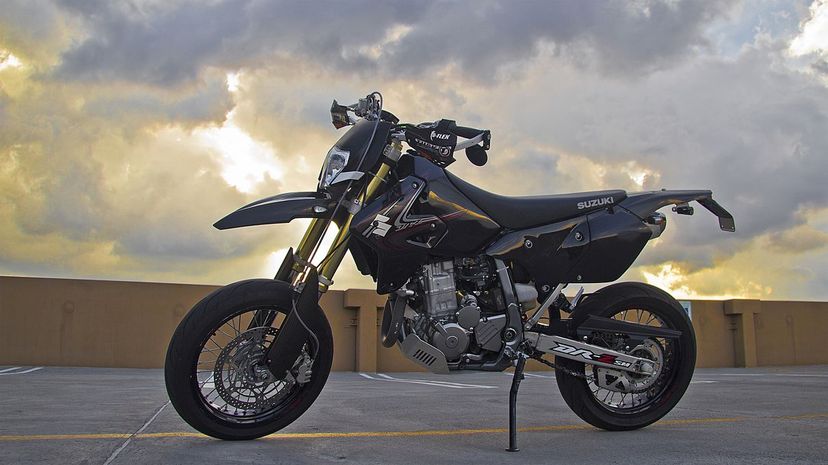
Dual sport bikes, also known as "adventure" bikes, are designed to combine the best of street bikes and dirt bikes into a vehicle that can be used either way. With a dual-sport bike, riders can go on long trips where they might be forced to leave the highway to take the backroads. These bikes can be stripped down or feature-rich, but they're ready for whatever the journey throws at them.
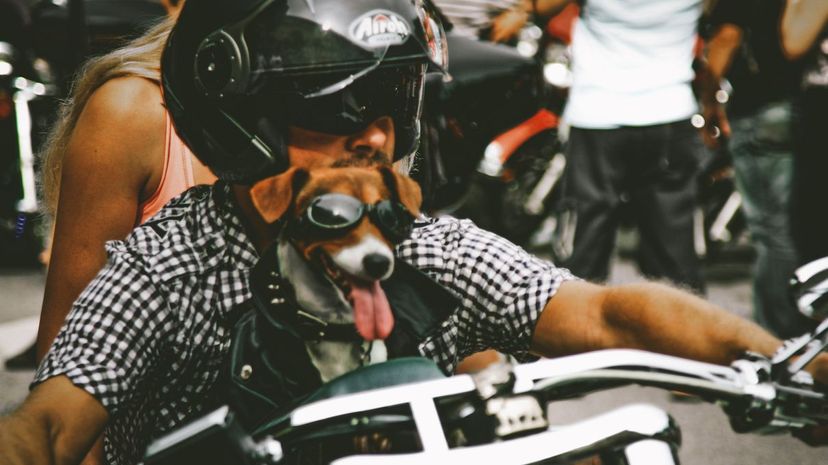
Sturgis, South Dakota, is the home of the annual Sturgis Motorcycle Rally, which draws almost half a million riders a year. Started in 1938, the Rally has grown year after year. The event, held in August, lasts for 10 days and has entertainment, events, competitions and, of course, a blue ton of motorcycles.
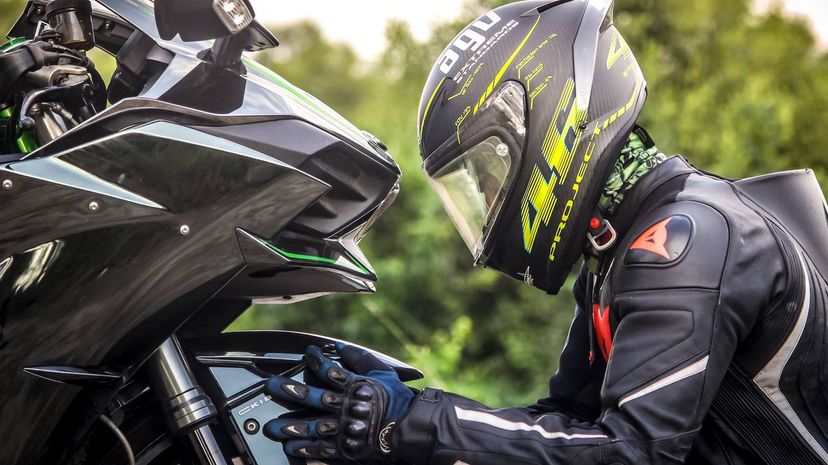
A "trike" or a "spyder" is a motorcycle with three wheels. Trikes have two wheels in the back, while newer spyders have two wheels in front. These bikes are more stable than their two-wheeled cousins and are great alternatives for those who want to have the motorcycle experience but don't feel comfortable on a regular bike.
Advertisement

Road rash is a skin condition best avoided. It refers to the wounds received by sliding on the pavement after a motorcycle accident, where the skin is stripped away. Wearing proper gear can help riders minimize this condition or avoid it entirely.
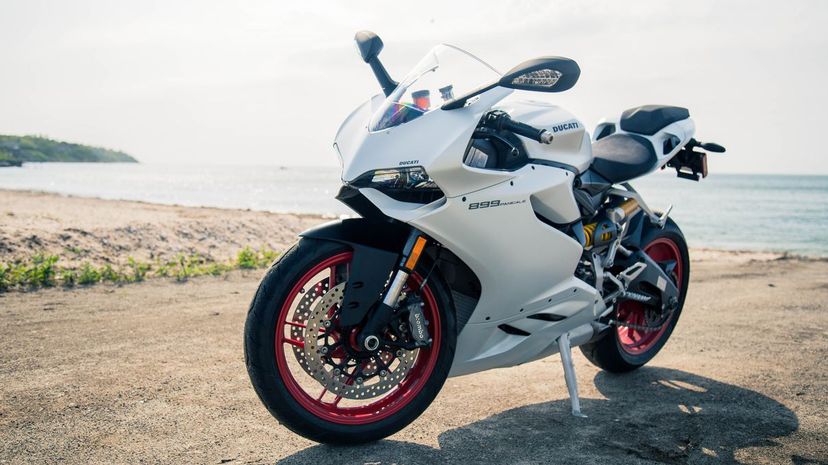
The fairing on a motorcycle is the windscreen at the front of the bike and can take different shapes and sizes. While they can provide some protection from objects that might get kicked up on the road, not all motorcycles have fairings; some riders don't care for them because they can cause the handlebar to shake in certain conditions.
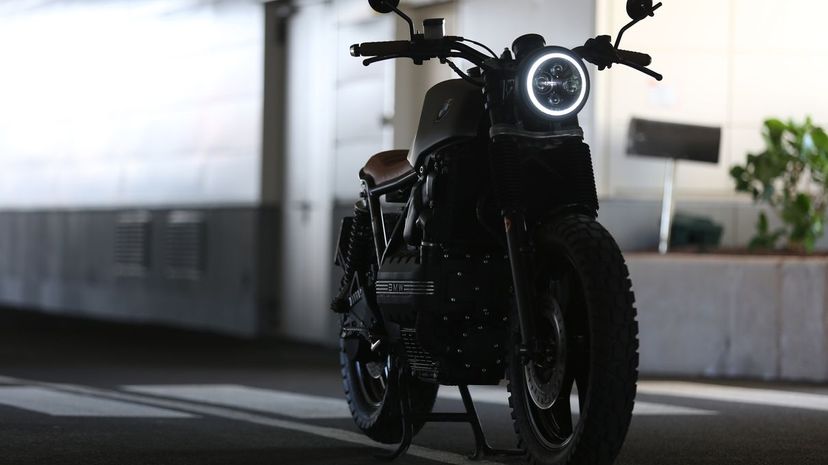
A naked bike is also called a standard motorcycle, as it has no modifications and is intended to be a general-purpose vehicle for street use. The term "naked" was used for 1950 British motorcycles that were used for racing. Standard motorcycles are great for those just learning to ride.
Advertisement
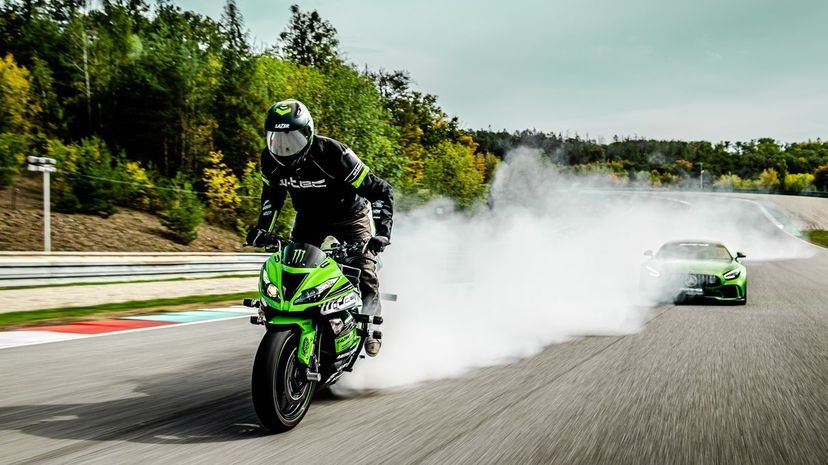
It's difficult - it was impossible before certain advances in braking technology were made - but if you can stand your bike up on its front wheel, you've just done a "stoppie." While it looks cool, it's not easy to do and, if done poorly, can damage both bike and rider.
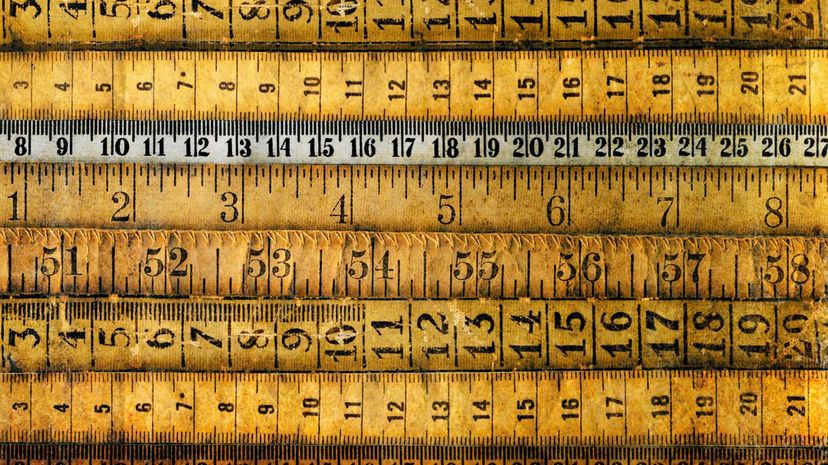
Most motorcycle engines are smaller than most automobile engines, and cubic centimeters (cc) are used to describe the air that is displaced by the engine's cylinders. Where an automobile engine would be a 1.6-liter motor, the same size engine on a motorcycle would be described as a 1,600-cc motor. Some American makers, such as Harley-Davidson, use the cubic inches for their measurement.
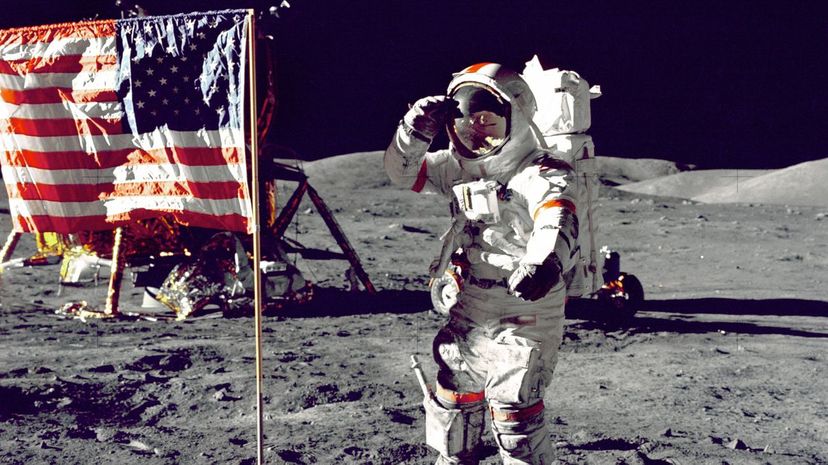
There are variations, but the "motorcycle salute" is usually done as two oncoming bikers pass each other on the road. They put their left arm out and hold it low, with two fingers extended as a sign of recognition and respect. This is thought to have begun in 1904 when Arthur Davidson passed by William Harley, and they waved. Since these were giants in the field, the simple gesture caught on immediately.
Advertisement
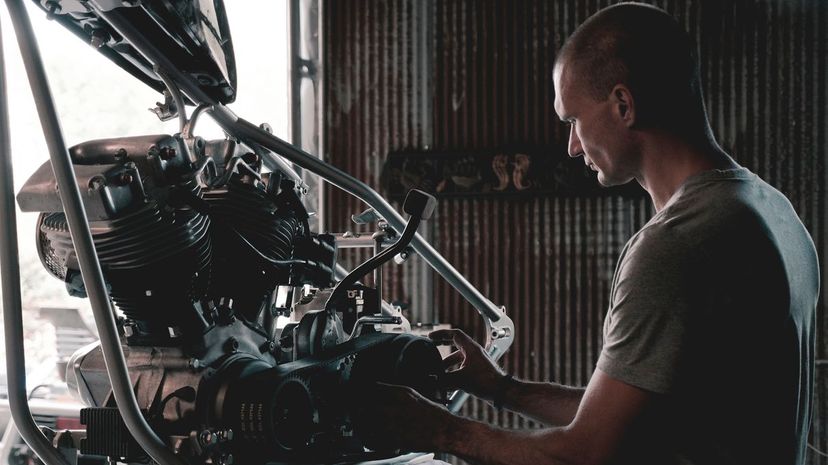
While fuel injection systems have taken over in the automotive realm, the humble carburetor is still in use by many motorcycles today. They both do the job of mixing fuel and air into a combination that the internal combustion engine can use, but carburetors are cheaper and easier to repair. They aren't as environmentally friendly as fuel injection systems, however, and can be trickier to start. Still, carbs are hanging in there for the moment.
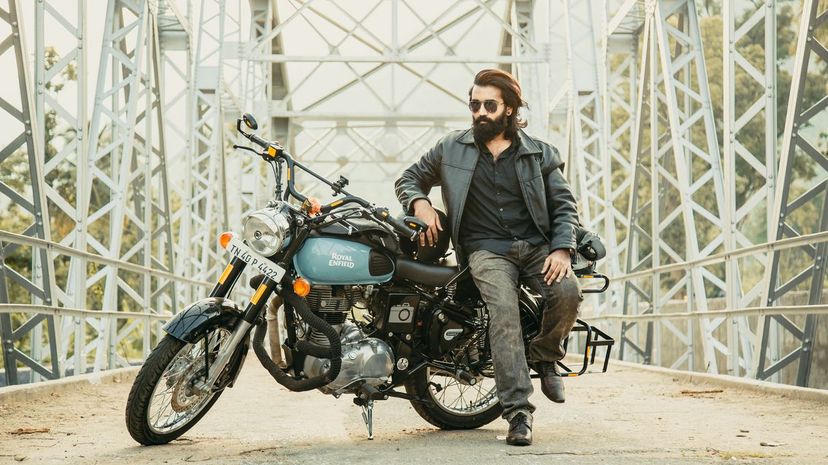
On a nice day, it's tempting to wear a t-shirt, shorts and flip flops, especially if you're just going for a quick ride to feel the wind in your hair. Riding a motorcycle, however, is something to be taken seriously; a ride can quickly turn into a slide if things go wrong, and light clothing offers absolutely no protection in a slide - it's skin vs. road, and skin will never win.
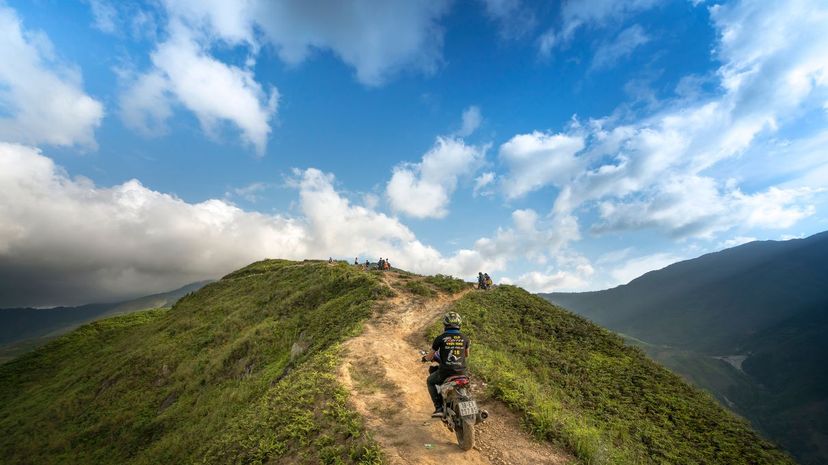
In 2004, British actors and motorcycle enthusiasts Ewan McGregor and Charley Boorman filmed a documentary series of their adventure of riding their BMW R1150GS all-terrain motorcycles around the world, starting in London and ending in New York City. The trip was also used to promote UNICEF, visiting some of the places the humanitarian group was doing their work. The two also filmed another series, "Long Way Down," riding from Scotland to South Africa in 2007.
Advertisement
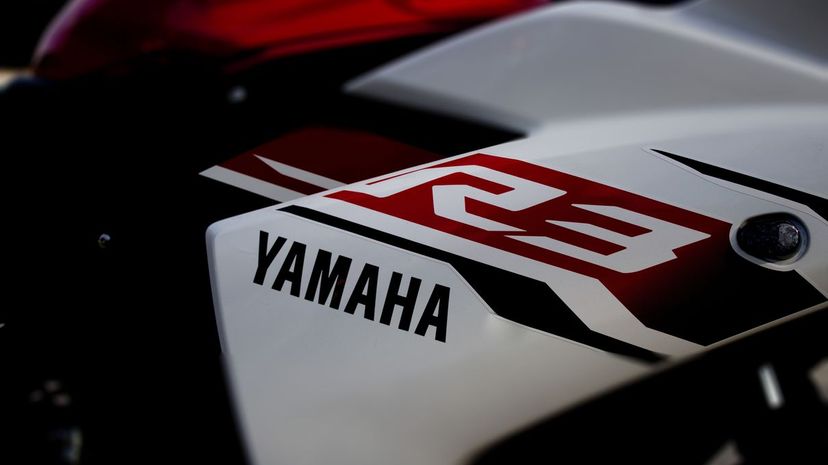
Yamaha started in 1887 as a Japanese company that made pianos and reed organs and is, in fact, the largest piano manufacturer in the world. Yamaha Motor Company, which makes motorcycles, boats and other vehicles, was formed in 1955 and was eventually spun off to form its own company (although Yamaha is still a major shareholder).

The Isle of Man Tourist Trophy race is one of the most famous and exciting motorcycle competitions in the world. It's also one of the most dangerous; riders are regularly killed as they tear around the unforgiving 37-mile road race that is made up of both city and country roads. The race, known as the "IoMTT" to some, has claimed the lives of more than 250 people since it started in 1907.
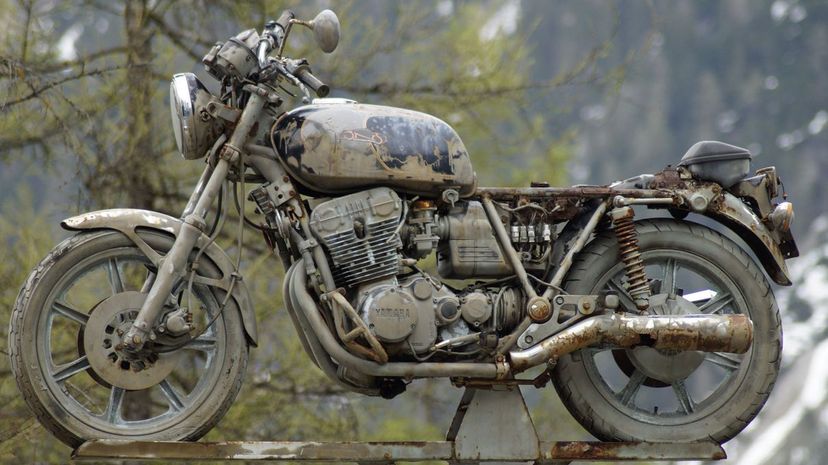
Just as some automobile drivers have the "good" car and then the old, dented pickup truck for hauling dirty loads, some bikers have their "rat" bike. The bike doesn't have to be in bad condition but has to be one that the rider doesn't really care that much about getting dented, scratched or otherwise abused. Ironically, some riders come to love their "rat" bikes and the fun they can bring and wouldn't be without them.
Advertisement
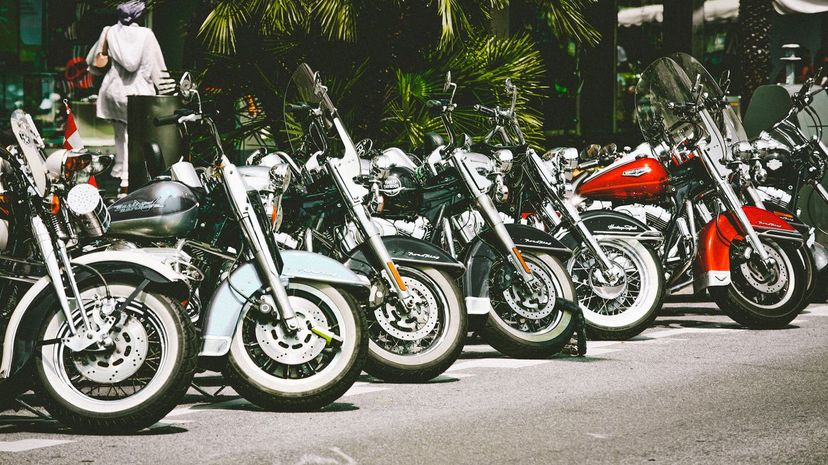
The vast, vast majority of people who enjoy riding motorcycles are just that - people who enjoy riding. The "one-percenters," however, seem to get the bulk of the public's attention. Motorcycle gangs, "outlaw" biker movies and television shows and the like don't represent the reality of motorcycling culture, but the stereotype can color all riders in the minds of some.
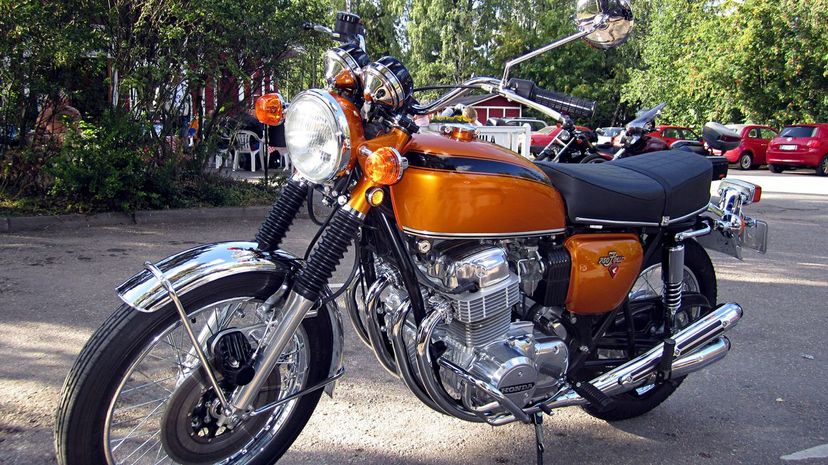
When it was released in 1969, the Honda CB750 Four changed the rules of motorcycle manufacturing. The 750 has the first mass-produced transverse inline-four engine, along with a front disk brake and a lot of power - and, at $1,495, was very affordable for the time. Other motorcycle makers had to scramble to complete with this new player on the field as the CB750 quickly found an audience.
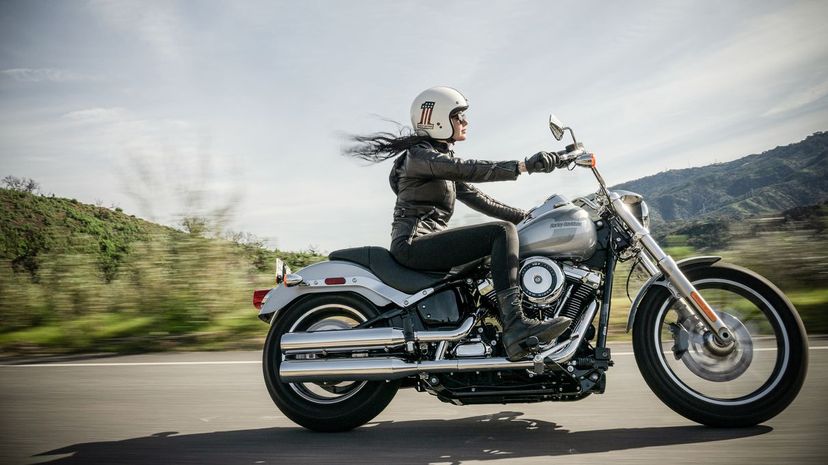
"Skins" refers to the tires of the motorcycle. Since the margin of error is so much less for motorcycles than it is for automobiles, motorcyclists should make sure their tires are in good condition and appropriate for both the bike they are riding and the conditions they'll be riding through.
Advertisement
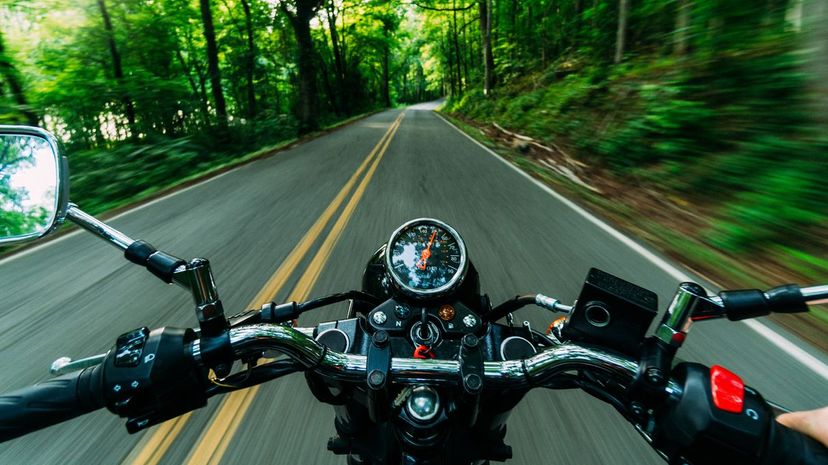
It's important to know how to handle your bike in an emergency situation so you can avoid trouble without losing control. Slamming on the bike's brakes is a quick way to let the bike get away from you. A gentle squeeze followed by increasing pressure on the brakes is the best way to keep upright and out of trouble. When first starting out on a bike, it's a good practice to try braking at different speeds in an empty parking lot to see how the bike handles.

In 2018, Honda was the best-selling motorcycle manufacturer in the world, moving 19.6 million bikes across the globe. In the United States, Harley-Davidson motorcycles are the most popular, although brands like Ducati, BMW, Honda and Yamaha are closing the gap.
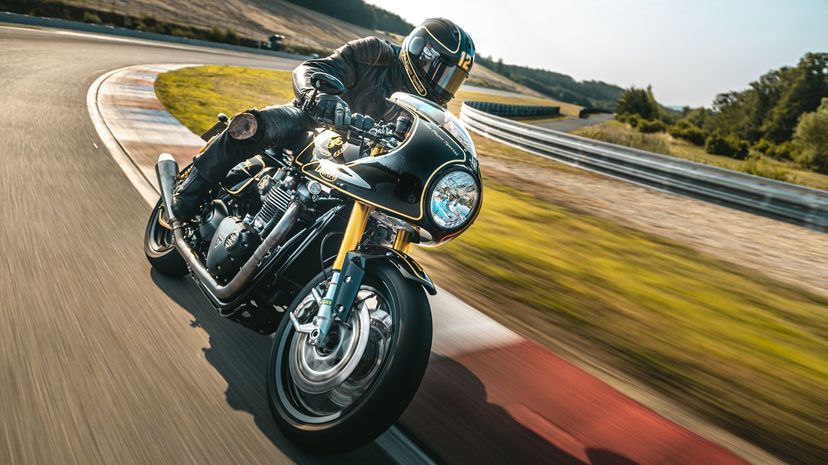
On February 25, 2017, endurance motorcycle rider Carl Reese got on his motorcycle at the Continental Tire Proving Grounds in Uvalde, Texas. When he got off the next day, he had traveled 2,116.5 miles, breaking the previous record by 93 miles. Reese has his name on many records, including making the fastest motorcycle trip from Los Angeles to New York City in 2015 (a record that was broken a few years later).
Advertisement

"Ring-dings" - also known as "skeeter bikes," "fog machines" and "buzz bombs," among other things - are motorcycles with two-stroke engines. Mechanically simpler than the standard four-stroke engine used in modern motorcycles and automobiles, these engines also spew out a great deal of pollution and are no longer widely made. The nickname comes from the "ringing" sound of the engine.
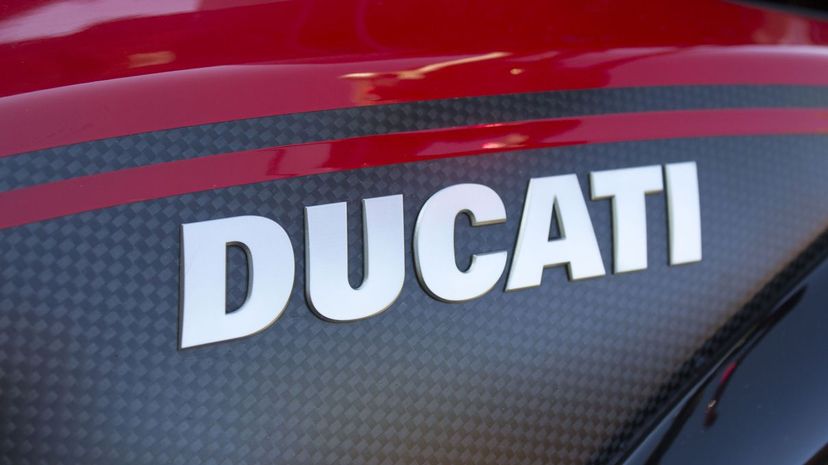
The trail of corporate ownership can get a little confusing: Ducati Motor Holding is owned by the Italian automaker Lamborghini. Automobili Lamborghini S.p.A is a wholly-owned subsidiary of Audi AG. Audi is then owned by the Volkswagen Group, which actually holds a large number of companies recognizable to gearheads around the world. So, the answer, ultimately, is Volkswagen.

A true biker needs to feel the breeze as they cruise down the highway - something that's not possible inside a car. To bikers, those poor fools are riding in a cage (and they are sometimes referred to as "cagers"). That term, by the way, is usually derogatory.
Advertisement

When a biker refers to his or her "cogs," they are talking about the gears in their motorcycle's transmission. If you say you have "five cogs in the box," it means that your bike has five gears in the transmission.

Harley riders love their Hogs, and those who want to own a piece of the company love their "HOG," which is the official stock listing of Harley-Davidson Inc. The company, founded in 1903, became a publicly-traded company in 1965.
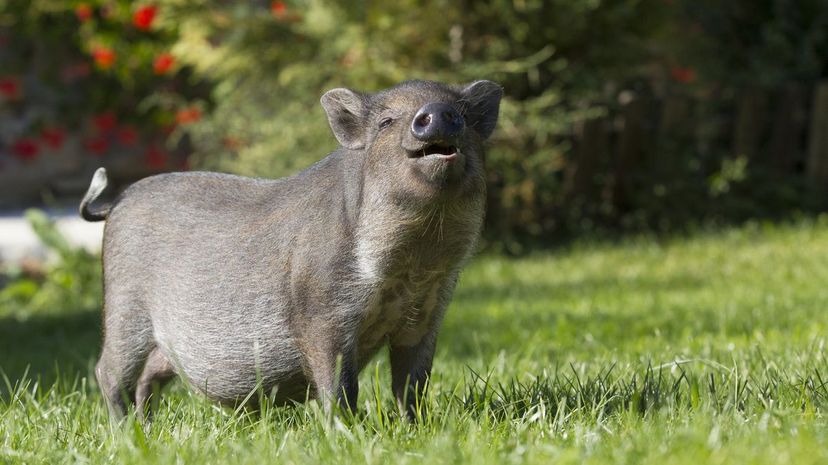
People have referred to Harley-Davidson motorcycles as "hogs" for almost a century because a member of the company's factory racing team, Ray Weishaar, got a pet piglet that would become the team's mascot. The team would ride a victory lap with the pig - whose name was Johnny - after every win. The company eventually embraced the nickname, and today those who ride Harley's are in the "Harley's Owners Group."
Advertisement
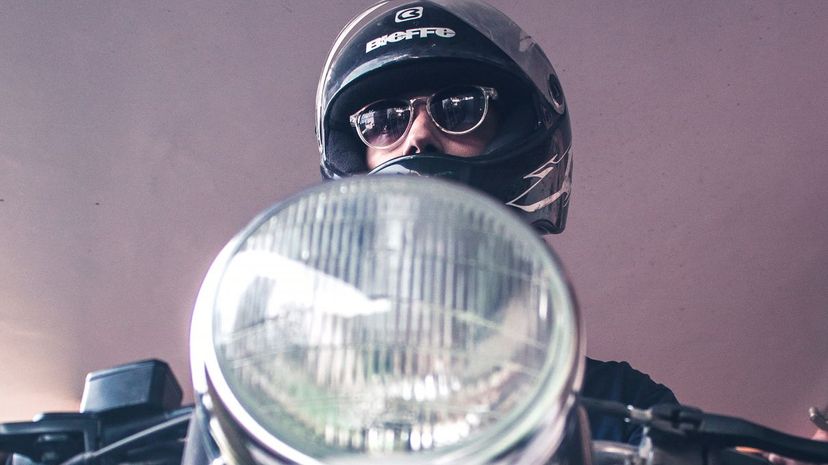
There are 28 states with partial helmet laws on the books, which require certain people on motorcycles to wear helmets. These can include passengers under the age of 18, operators still on learner's permits, those who do not meet that state's requirement for medical insurance coverage, and so on.
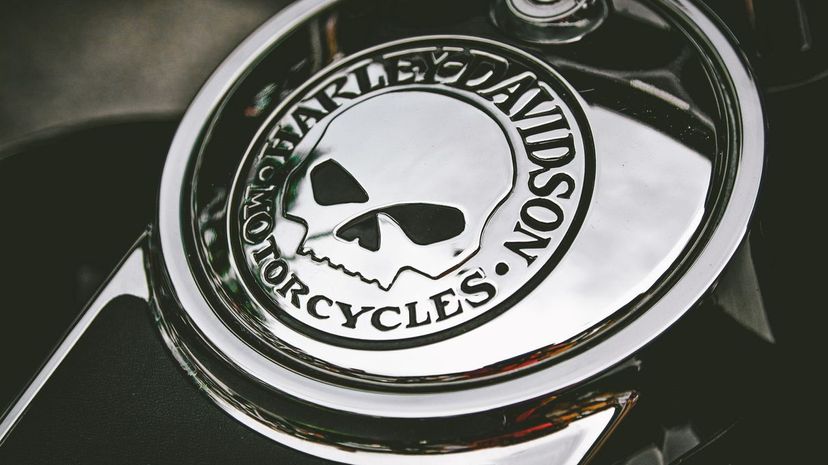
The reports in 2014 that Japanese manufacturer Kawasaki had bought the American icon Harley-Davidson set the motorcycle world on fire - until people saw the dateline of the article: April 1. The April Fool's joke caught many off guard, and the "press release" can still catch people off guard if they don't read closely enough.
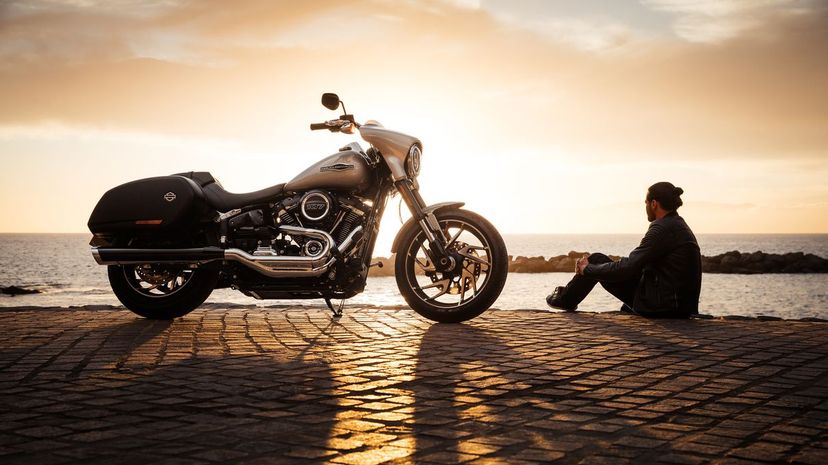
The "pannier" is a name of French origin that is given to the saddlebags on either side of the passenger seat. These backs can be either be made of soft material or can be hard-sided cases. These bags or cases are referred to by some as "pannies."
Advertisement
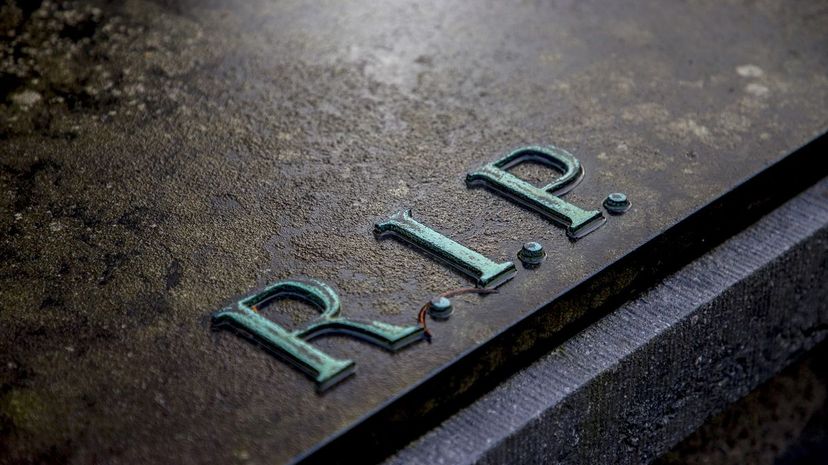
British author, archaeologist and army officer T. E. Lawrence - better known as "Lawrence of Arabia" - swerved to avoid a boy on a bicycle on a rainy day in 1935 and went over the bars of his motorcycle. He would die of severe head injury. One of the medics who treated him, Hugh Cairns, was so disturbed by the incident that he went on to gather information and write a report on the importance of wearing helmets when operating motorcycles.
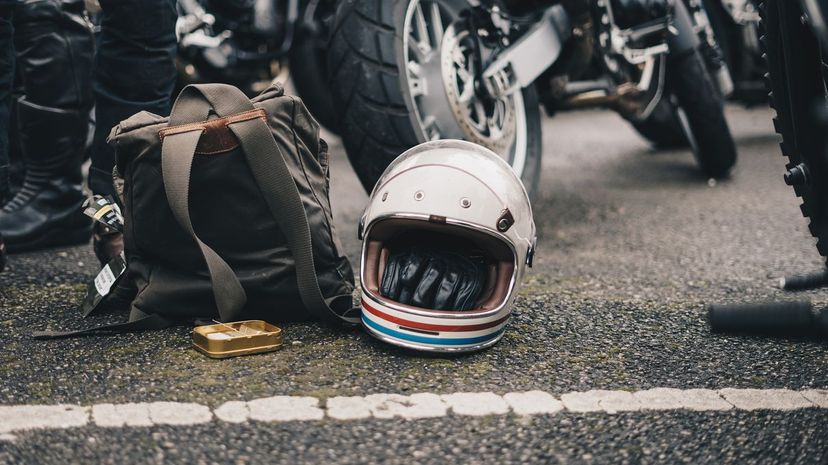
There are only three states in the U.S. that have no laws regarding wearing helmets while operating or riding on a motorcycle: Illinois, Iowa and New Hampshire. The other 47 states have laws governing the use of helmets, but those laws can vary widely.